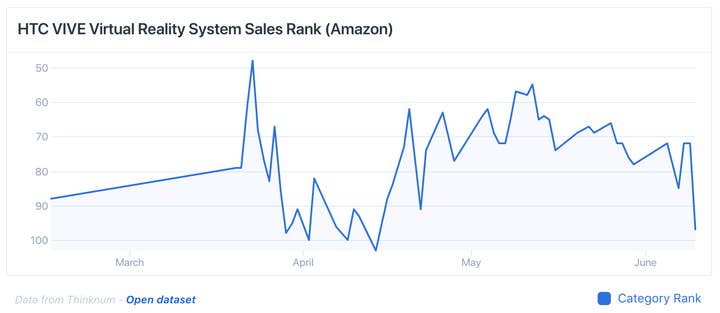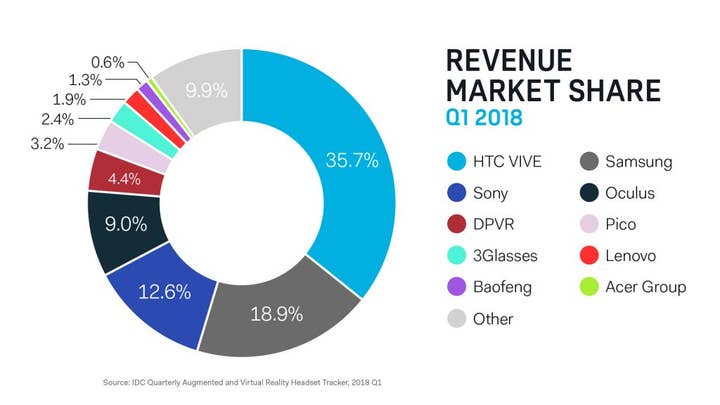HTC defends lack of data when disputing VR "tailspin"
Headset manufacturer claims its leading position shows health of market - despite failing to demonstrate with sales figures
Despite evidence suggesting a freefall of consumer interest in virtual reality, HTC Vive claims it "paced at its highest sales velocity of all time, for weeks on end" and has sold out of units.
The electronics giant posted statistics claiming its market share was growing, following a Digital Trends article that suggested the virtual reality market was in decline.
However, as Digital Trends later countered, HTC Vive leading the market and said market being in decline are not mutually exclusive. The outlet then criticised HTC Vive for not offering up solid data to support its claims.
"We relied upon Amazon's rankings because the companies making VR headsets have kept quiet," said Digital Trends editor Matthew Smith in a follow-up post.
"HTC, Oculus, or Sony could easily disprove skeptics if they shared outstanding sales figures - but they instead choose to play coy, providing relative measures like market share, revenue share, or lifetime total sales."
GamesIndustry.biz approached HTC Vive directly for clarification but the company failed to provide any evidence to substantiate its position.
"While the Thinknum data shows movement week over week, the major point we are disputing in the blog post is that VR is falling off of a cliff," a spokesperson told us. "Our internal data shows the opposite, and hence the recent stockout."

The original Digital Trends article argued that sales of VR headsets are "in a tailspin, with no signs they'll pull out".
According to Amazon sales data tracked by Thinknum, there is a declining consumer interest in VR, as evidenced by falling in sales figures of Samsung, HTC, Oculus, and PSVR headsets.
While HTC Vive previously enjoyed a Top 50 spot earlier this year, it's been followed by a steady, then very abrupt fall off (see graph above).
It's a similar story for the other leading headsets, all of which demonstrate varying levels of decline. Some more rapid than others.
However, HTC Vive refuted this, claiming sales are only down because the company has sold out, and it will be "ramping up production" in the near future.
In an effort to disprove the assertion that VR is dying, HTC Vive offered up figures from the International Data Corporation which paints it as the market leading headset last quarter.

